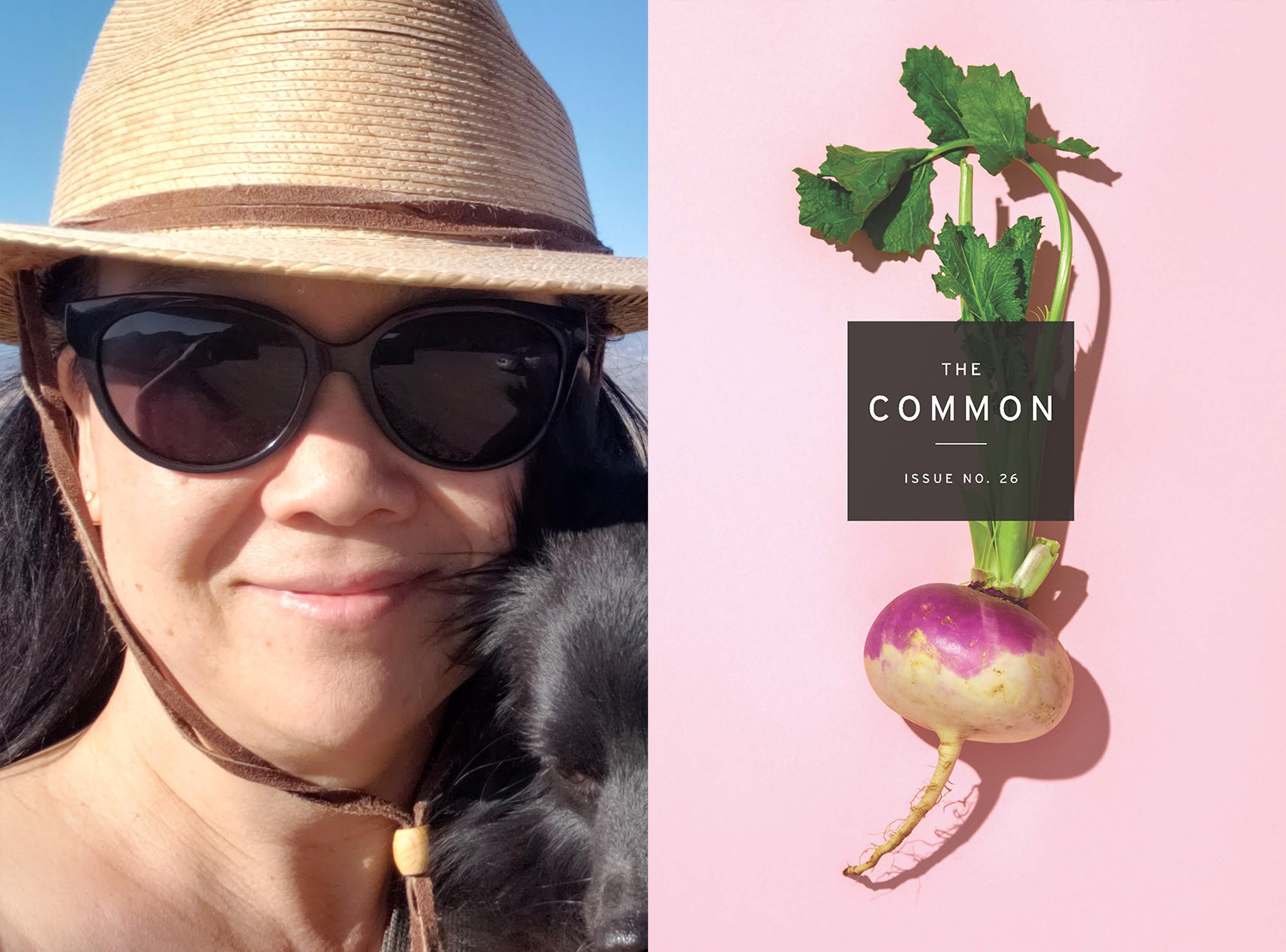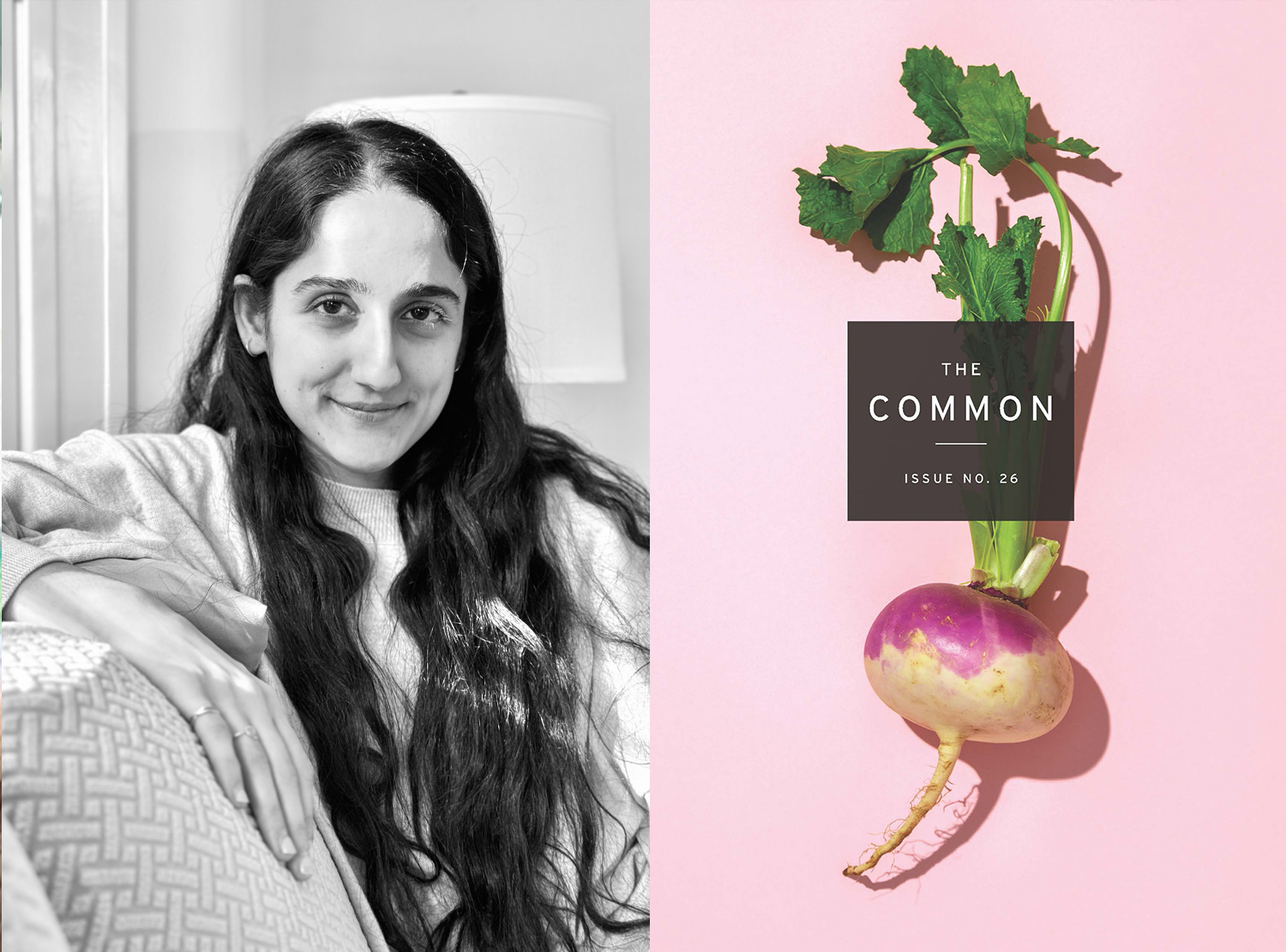At first I thought the pileated woodpecker
that lifted up from the yard as we came home
from a walk in the woods, flapping
away on long black wings that curved
up at the tips and flashed white
underneath, might be a visitation
All posts tagged: Audio
Papel Picado
Right before her twenty-fifth birthday, Chacha shaved her head, shearing the long black hair I’d known my entire life down to tiny-ass stumps. Having not spoken to my half sister in months, I learned about her haircut through Cero Reyes in the hallway of Our Lady of Guadalupe, where I was a sophomore. He was the little brother of her number-one homegirl, Cici, and had been there that past weekend at his parents’ hacienda up in the North Valley, banging on the bathroom door while our hermanas conspired Chacha’s new look.
I had to take a fucken piss, he said. Real bad too, but they spent over an hour in there, all giggling n’ shit.
You got a fuckload of bathrooms, I replied, gathering books from my locker to show the huevón I had other priorities. You coulda pissed in any of them.
“Cero” was a nickname that translated to nothing. It had carved this wiry, tacuache-looking vato since the day he could talk. Dude blabbered so much as a baby, stringing together words in an order that, according to his parents, made zero sense. He belonged to a family that made a name for itself in Juárez through some maquiladora empire. They’d moved to Albuquerque once his mami announced her desire to start a turquoise jewelry business. A couple years later, Cici popped into their world, who then met Chacha in a dance class for toddlers, and next thing you know they form this lifelong bond, a friendship so strong it forced me to spend too much of my childhood on a giant estate where I couldn’t help but wish my parents never divorced—wish we had enough skina to get out the varrio—wish my mother wasn’t such a pinche gringa and my pocho father spoke better Spanish.
That ain’t the point, Cero continued. It’s my bathroom, cuh. They used my shaving kit. Your sis’s hair was on the sink, shower, mirror—even the fucken toilet seat!
Podcast: Amanda Mei Kim on “California Obscura”
Amanda Mei Kim speaks to managing editor Emily Everett about her essay “California Obscura,” which appears in The Common’s most recent issue, in a portfolio of writing and art from and about the immigrant farmworker community. Amanda discusses how the essay changed and developed over many drafts. The finished piece explores her childhood growing up on her parents’ tenant farm in Saticoy, California, just north of Los Angeles. It also examines the long history of farmworker resistance and labor movements in the area, which crossed divides of race, ethnicity, and origin.

Podcast: Nayereh Doosti on “The Little One”
Nayereh Doosti speaks to managing editor Emily Everett about her story “The Little One,” which appears in The Common’s most recent issue. Nayereh talks about the many inspirations behind this story, which follows an older Iranian man coming to America, where he feels out of place with his family members, the community, and the younger generations. Nayereh also discusses her time as an intern at The Common, her MFA program at BU, and her brand new Persian translation of Aleksandar Hemon’s The Book of my Lives, out now in Tehran.

Nayereh Doosti is an Iranian writer and translator based in Berkeley, California. Her writing has appeared or is forthcoming in Epiphany Magazine, The Massachusetts Review, and Nowruz Journal, among others. She holds an MFA from Boston University, and is a former intern at The Common.
Read Nayereh’s story “The Little One” in The Common at thecommonoline.org/the-little-one.
The Common is a print and online literary magazine publishing stories, essays, and poems that deepen our collective sense of place. On our podcast and in our pages, The Common features established and emerging writers from around the world. Read more and subscribe to the magazine at thecommononline.org, and follow us on Twitter @CommonMag.
Emily Everett is managing editor of the magazine and host of the podcast. Her debut novel is forthcoming from Putnam Books. Her stories appear in the Kenyon Review, Electric Literature, Tin House Online, and Mississippi Review. She was a 2022 Massachusetts Cultural Council Fellow in Fiction.
Podcast: Leo Ríos on “Lencho”
Leo Ríos speaks to managing editor Emily Everett about his story “Lencho,” which appears in The Common’s most recent issue, in a portfolio from the immigrant farmworker community. Leo talks about the process of writing and revising this story, which explores the friendship between two high school seniors in a rural community in California’s Central Valley. Leo also discusses his family’s generations-long history in farm labor, and how a class on reading poetry made him rethink prose writing on the sentence level.

Podcast: Vix Gutierrez on “Don’t Step Off the Path”
Vix Gutierrez speaks to managing editor Emily Everett about her essay “Don’t Step Off the Path,” which appears in The Common’s most recent issue. Vix talks about writing this essay, a coming of age story about her teenage years spent in the Balkans immediately after the Yugoslav Wars, where she lived with a very small humanitarian aid organization. The essay is a fascinating look at a rarely-explored moment in time, and probes the doubts, dangers, and power that come from being a young woman in a postwar landscape of men. Vix also discusses her formative time spent at the DISQUIET International Program in Lisbon, Portugal, and in the MFA program at the University of Florida.

Issue 26 in the news
Since its publication this November, The Common’s Issue 26 portfolio of writing and art from the seasonal, migrant, and immigrant farmworker community has received attention from a variety of news outlets and organizations across the United States. Visit the links below to hear conversations with farmworker portfolio co-editors and contributors, read more about the development of the portfolio, and keep up with ongoing programming involving our fall issue.
 |
 |
 |
 |
*
The Little One
The baby would be fine, Saeed’s wife said. As the family gathered around the dinner table for his special dessert, a beet cake with yogurt icing, and his home-brewed beer, Saeed agreed to watch the kids on Thursday so that his wife could have a day to herself. They were his grandchildren, too, after all. Although it was only his fifth day in the new country, he had already gotten over his jet lag, touched and kissed his family multiple times, and been given a tour of the neighborhood. He had also bought a road bike and signed up for a spot at the community garden. Now it was time to get acquainted with the grandkids.
Double Infinity
|
On 88th, the street where I lived as a girl when an hour could seem an eternity, it would be years before I met the young man who pointed out that those numbers, turned on their sides, had a special meaning. What meaning? I wondered and pondered the two unbroken loops pinched at their centers, forever returning to themselves like a pair of ice skaters tracing figure eights into a state of bliss. I wondered if he thought that love is infinite, that our souls will live forever, that sky even on crystalline days moves into unseeable endless space. I was thinking that the iris of his hazel eyes pulled me into a place where I could feel lost or float before thought was possible, as if in vitro. I no longer live on 88th Street, having left double infinity in its impossible realm. Because infinity cannot be multiplied or divided—infinity just is. Still, I was grateful that I didn’t live on Main Street or Elm, and the young man I married found meaning on that finite block in Queens where he found me. |
Podcast: Christopher Spaide on “Closure?”
Transcript: Christopher Spaide Podcast
Christopher Spaide speaks to managing editor Emily Everett about his poem “Closure?,” which appears in The Common’s most recent issue. Chris talks about how his curiosity for language and wordplay often lead him into deeper themes in his poems. He also discusses taking his first poetry class at Amherst College, and, now, teaching poetry classes himself at Emory University.











